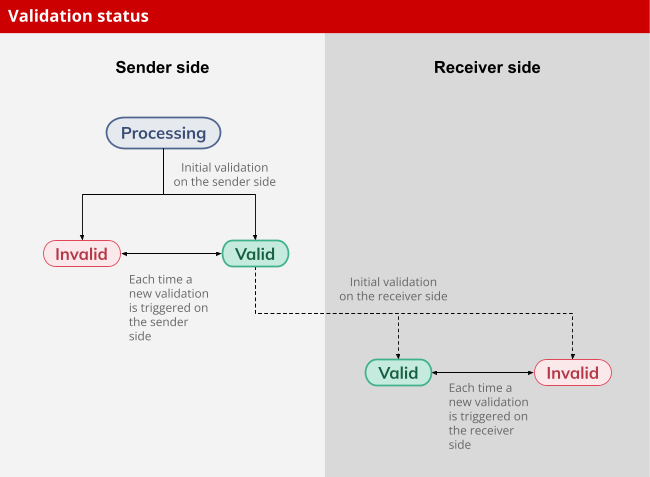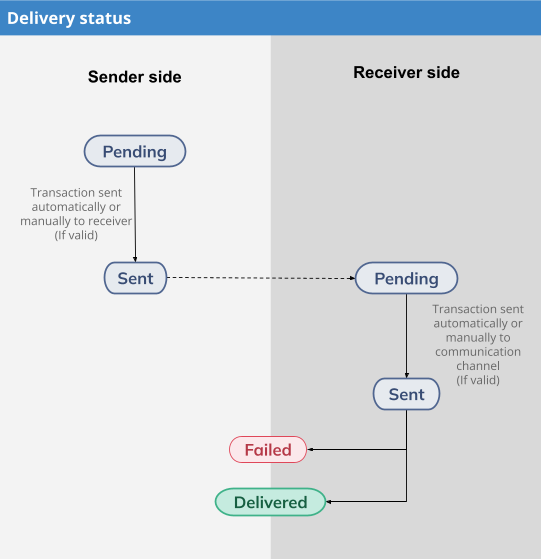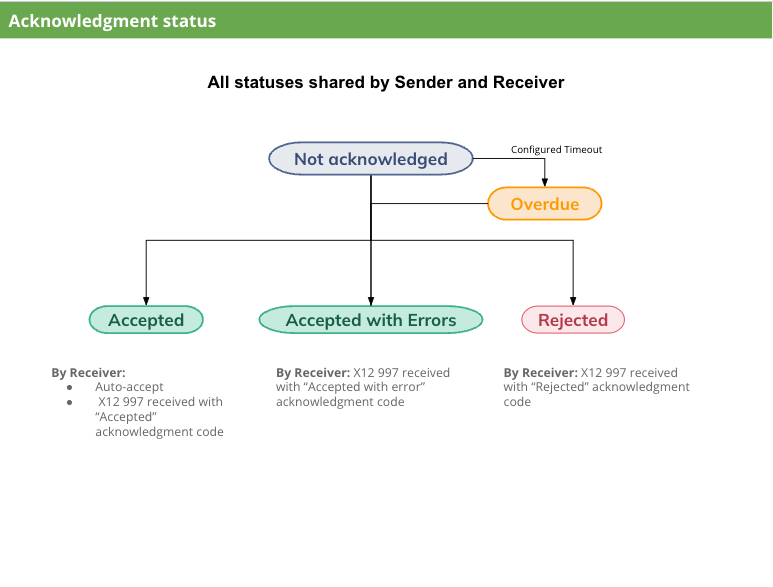Transaction statuses
Transactions that are passing through Orderful have three different types of status:
- Validation
- Delivery
- Acknowledgement
Each of these statuses contains information about the transaction.
Validation status
Validation is a process to check if the format and content of a transaction respect the defined validation requirements. Validation can involve Guidelines, Workflows, or Rules. Validation can be performed on the sender's side, the receiver's side, or both.
There are three possible validation statuses:
- Processing: Orderful is executing Rules and running Guideline validation on the transaction. You will not be able to view the transaction or perform any actions on it while it is in this status.
- Valid: The transaction respects Inbound Guidelines and Workflow requirements. There were no Rule execution errors.
- Invalid: The transaction doesn't respect one of the Inbound Guidelines or Workflow requirements, or there was a Rule execution error.

Delivery status
Delivery is the process of sending a file from Orderful to a Communication Channel and checking if it has been received.
There are four possible delivery statuses:
- Pending: From the sender's side, the delivery status stays "Pending" when the transaction hasn’t been sent to the receiver. From the receiver's perspective, the delivery status stays "Pending" when the transaction hasn’t been sent to the receiver’s communication channel.
- Sent: From the sender's side, the delivery status becomes "Sent" when the transaction is sent to the receiver. From the receiver's side, the delivery status becomes "Sent" when the transaction is sent to the receiver’s communication channel.
- Failed: The receiver’s Communication Channel didn’t receive the transaction.
- Delivered: The receiver’s Communication Channel confirmed the transaction has been received.

Acknowledgement status
Acknowledgement is a process initiated by the receiver to inform the sender whether the information from a transaction can be processed by the receiver’s backend system. Transactions that remain in "Not acknowledged" for a configurable period of time will be marked as "Overdue".
There are three possible acknowledgement statuses:
- Accepted: The receiver confirms to the sender that the transaction can be processed by their backend system. The receiver can either allow Orderful to auto-accept all their transactions or send an X12 functional acknowledgment (997) that contains an "Accepted" acknowledgment code.
- Accepted (with errors): The receiver confirms to the sender that the transaction can be processed by their backend system but highlights errors that they would like the sender to fix for future transactions. The sender doesn’t have to resend an updated transaction. This status is only available if the receiver sends an X12 functional acknowledgment (997) that contains an "Accepted with errors" acknowledgment code.
- Rejected: The receiver confirms to the sender that the transaction can’t be processed by their backend system. The sender has to resend an updated transaction correcting the errors. This status is only available if the receiver sends an X12 functional acknowledgment (997) that contains a "Rejected" acknowledgment code.

Updated 22 days ago
